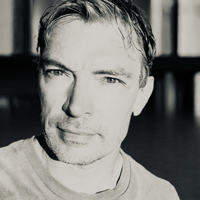Deep down, maybe we all want to believe that, somewhere in a venture-funded Silicon Valley lab, a 28-year-old with a Ph.D. is brewing the fountain of youth in a petri dish. Or that, for a mere $199 a month, the wonder supplement Bryan "Don't Die" Johnson is hawking this week will actually help us age backward.
But here's what Coleen Murphy, a Princeton biology professor, discovered after two decades studying aging and synthesizing nearly a thousand research papers on the subject: To remain healthy and young, the boring stuff works, and the expensive stuff generally doesn't.
Murphy's book, "How We Age: The Science of Longevity," was published in 2023 but is even more of a must read today for anyone tempted to blow their savings on resveratrol or whatever mushroom extract is trending on longevity Twitter. Because while tech bros debate the merits of rapamycin versus metformin, Murphy, in a series of more recent interviews about her book and the science of aging, drops multiple anti-aging truth bombs, including this one:
The two best longevity drugs are still, and will always be, exercise and sleep.
Your muscles are talking to your brain
Here's what actually happens when you exercise, according to Murphy's research: Your muscles release chemicals into your bloodstream that travel to your brain and improve cognitive function. Resistance training triggers different beneficial pathways than cardio. Your mitochondria — those cellular power plants — actually turn over and perform better when you use your muscles. That's how bodies stay fit and healthy for longer.
For sedentary people, just starting to walk daily provides substantial benefits. No ice baths required. No Zone-2 heart rate monitors. No $300 monthly gym membership with infrared saunas.
Murphy also cautions against limiting daily calorie intake, aka calorie restriction, and a less onerous but related practice known as intermittent fasting. She cites a controlled study where people who simply tracked what they ate did as well or better than intermittent fasters, who actually lost muscle. The benefit, Murphy said in interviews, might just come from paying attention to what you're eating.
Revolutionary concept, I know.
Sleep deprivation literally damages your brain
Short-changing your sleep is "super damaging" to human longevity, Murphy says. Without adequate rest, your brain can't clean out toxins. Most people need seven to eight hours.
The drugs that might actually work (but don't buy them yet)
In her conversations about "How We Age," Murphy is straightforward about longevity drugs. GLP-1 drugs like Ozempic might be "the longevity drug that nobody was looking for" — not because they make you thin, but because they reduce addiction to smoking, alcohol and opioids. Metformin, that boring diabetes drug, is undergoing proper trials. Rapamycin might mimic caloric restriction without the misery.
But — and this is crucial — Murphy warns against the supplement industrial complex. There's no evidence to prove what's actually in unregulated supplements, or whether they work, she says. What's in the bottle might not even match the label. That 2005-ish resveratrol craze from the red wine studies turned out to be flat wrong. The French, Murphy says, have lower heart disease because they walk everywhere and have universal health care, not because of their Bordeaux.
The uncomfortable truth about cognitive decline
Mental sharpness is "probably the most important thing for us to maintain," Murphy says in conversations about her book. But those brain-training apps you're subscribing to? They don't work. Crossword puzzles make you better at crossword puzzles, not thinking.
What does work is using your brain to sustain thoughts. That may sound ridiculously obvious until you consider how much the average adult cedes old-fashioned analog thinking to internet-connected devices nowadays.
Your brain stays young by being interested not in digital screens but in daily life. In learning new things. In face-to-face, or voice-to-voice, conversations. All the things that Silicon Valley can't monetize or package into a supplement.
The real longevity drug is economic equality
Murphy also believes economic inequality is the biggest barrier to longevity. Addressing poverty, she says, would raise our society's average lifespan more than any drug could. Vaccines, for example, have done more for human longevity than any supplement.
The maximum human lifespan without intervention hovers around 115-120 years. The people who've reached these ages had zero access to longevity drugs. They just had good genes, good luck and a full social calendar.
All that said, Murphy predicts that effective aging drugs will arrive within the next decade, and she speaks favorably about a handful of biotech companies that are running proper clinical trials now. But when they arrive, these drugs won't be equitably distributed. Guess who will get the short end of that anti-aging stick?
So, resist. Move your body. Sleep well. Stay curious. Call your friends.
How long we live isn't the point. How well we live is.
To find out more about Paul Von Zielbauer and read features by other Creators Syndicate writers and cartoonists, visit the Creators Syndicate website at www.creators.com.
Photo credit: Jenny Hill at Unsplash






View Comments